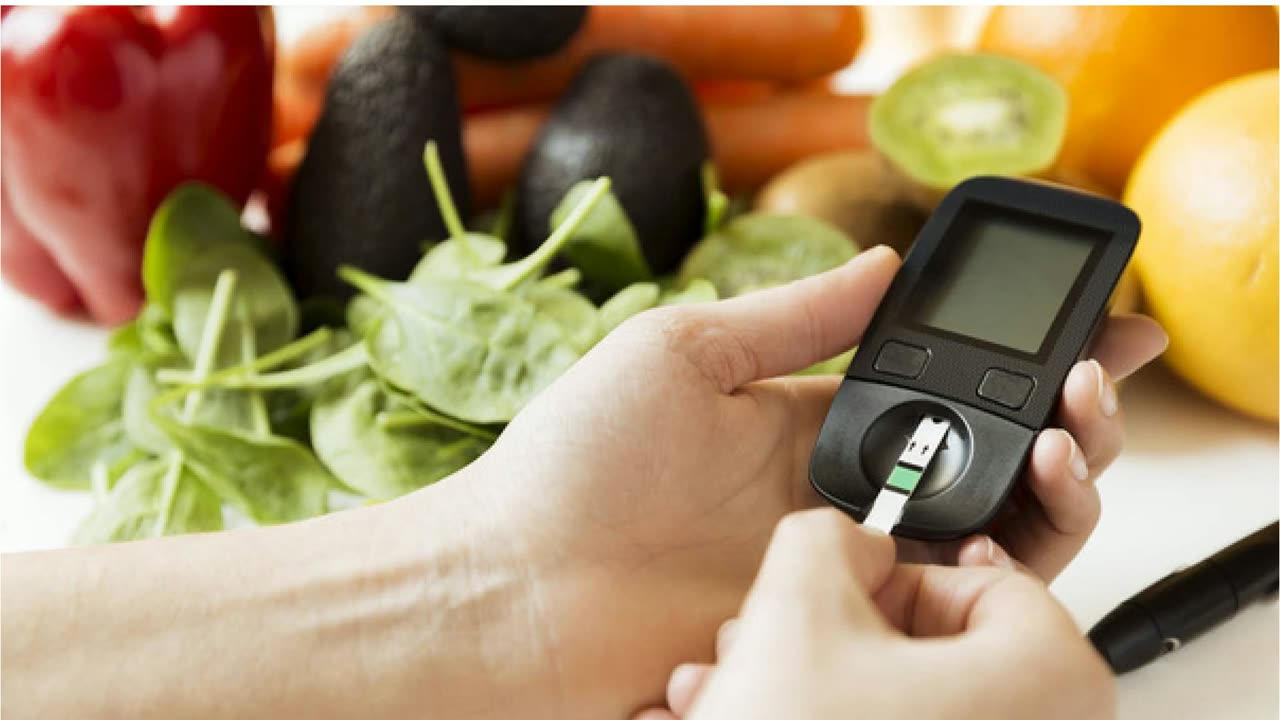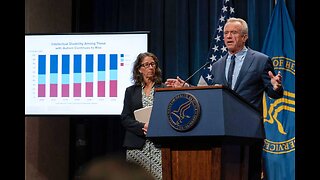Premium Only Content

Understanding Diabetes:Types,Signs and symptoms
What is diabetes?
"Diabetes is a chronic health condition that affects how your body turns food into energy. When you eat, your body breaks down food into glucose, a type of sugar. Glucose is then released into your bloodstream, where it's transported to your cells for energy.
"To get glucose into your cells, your body needs a hormone called insulin. Insulin is produced by the pancreas, a small organ located behind your stomach. When your blood glucose levels rise, your pancreas releases insulin to unlock your cells and allow glucose to enter for energy.
"In people with diabetes, either the body doesn't produce enough insulin, or the cells don't respond to insulin properly. This means that glucose builds up in your bloodstream instead of getting into your cells for energy. High blood glucose levels over time can lead to serious health complications, including heart disease, stroke, nerve damage, and vision problems.
Types of diabetes
"There are two main types of diabetes: type 1 and type 2.
"Type 1 diabetes is an autoimmune disease that typically develops in childhood or adolescence. In type 1 diabetes, the body's immune system attacks and destroys the beta cells in the pancreas, which are responsible for producing insulin. Without insulin, people with type 1 diabetes must manage their blood sugar levels with insulin injections or an insulin pump.
"Type 2 diabetes is the most common type of diabetes, accounting for about 90% of all cases. It's often associated with lifestyle factors, such as being overweight or obese, having a family history of diabetes, and having a sedentary lifestyle. In type 2 diabetes, the body either doesn't produce enough insulin or the cells don't respond to insulin properly. lifestyle changes, such as losing weight, eating a healthy diet, and exercising regularly, can often help manage type 2 diabetes. However, some people with type 2 diabetes may also need medication to help manage their blood sugar levels
Symptoms of diabetes
"The symptoms of diabetes can vary depending on the type and severity of the condition. Some of the most common symptoms of diabetes include:
• Increased thirst
• Frequent urination
• Extreme hunger
• Unexplained weight loss
• Fatigue
• Blurred vision
• Slow-healing sores
• Frequent infections
If you're experiencing any of these symptoms, it's important to see your doctor right away to get tested for diabetes. Diagnosing Diabetes
"If you're experiencing any of the symptoms of diabetes, it's important to see your doctor right away. There are a few different tests that can be used to diagnose diabetes. These include:
• A1C test: This test measures your average blood sugar level over the past 2-3 months.
• Fasting blood sugar test: This test measures your blood sugar level after you haven't eaten for at least 8 hours.
• Oral glucose tolerance test (OGTT): This test measures your blood sugar level after you drink a sugary liquid."
• Early diagnosis and treatment can help prevent serious health complications.
Living with diabetes
"Managing diabetes can be challenging, but it's definitely doable. With proper care and lifestyle changes, people with diabetes can live long and healthy lives.
Here are some things you can do to manage your diabetes:
• Monitor your blood sugar levels regularly. This will help you keep track of your blood sugar levels and make adjustments to your treatment plan as needed.
• Eat a healthy diet. Choose foods that are low in sugar, saturated fat, and cholesterol.
• Exercise regularly. Aim for at least 30 minutes of moderate-intensity exercise most days of the week.
• Take your medications as prescribed. Your doctor may prescribe medication to help manage your blood sugar levels.
• See your doctor for regular checkups. Your doctor will monitor your blood sugar levels, check for complications, and adjust your treatment plan as needed.
-
 LIVE
LIVE
Sgt Wilky Plays
2 hours agoFriday Firefight Fortnite
47 watching -
 34:24
34:24
BonginoReport
4 hours agoVaccine Victim Speaks Out As Her Bones DIE off - Nightly Scroll w/ Hayley Caronia (Ep.30)
53K77 -
 LIVE
LIVE
The UC Zone
2 hours ago🔴LIVE - ESCAPE FROM TARKOV - BACK WITH THE SQUAD P2
42 watching -
 1:38:21
1:38:21
vivafrei
5 hours agoDemocrats Defend the INDEFENSIBLE! Canada Looks Like it is FOOKED! Florida Shooter Latest & MORE!
99.5K68 -
 28:45
28:45
Stephen Gardner
4 hours ago🔴TRUMP CURSE: Letitia James PANICS as ALL Documents made public!
53K74 -
 52:18
52:18
LFA TV
8 hours agoThe Deadly Disease of Forgetting History | TRUMPET DAILY 4.18.25 7PM
5.45K1 -
 LIVE
LIVE
Quite Frankly
8 hours ago"Autism Uproar, Dartmouth Scars, Good Friday Thoughts" ft. J Gulinello 4/18/25
660 watching -
 LIVE
LIVE
2 MIKES LIVE
2 hours ago2 MIKES LIVE #207 with Bill Spadea, Candidate for Governor of NJ!
121 watching -
 3:34:36
3:34:36
Barry Cunningham
9 hours agoPRESIDENT TRUMP AND EL SALVADOR PRESIDENT NAYIB BUKELE PUT THE DEMOCRATS IN CHECKMATE!
88.7K21 -
 11:07:51
11:07:51
LFA TV
23 hours agoALL DAY LIVE STREAM 4/18/25
169K59